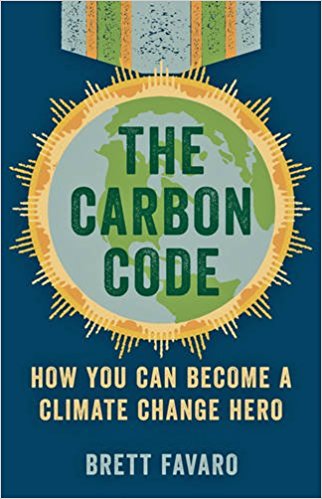In The Carbon Code (Johns Hopkins University Press, 2017), long-time #flyingless supporter Brett Favaro embeds aviation issues within a broader agenda for personal and social change. Along with the energy sector, local and regional transportation, and the food sector, Favaro explains the magnitude of aviation’s impact for the total greenhouse gas (GHG) emissions of comparatively prosperous people:
For the average person, [commuting] trips make up most of the transportation footprint. For those of us in the top quarter of global wealth, the GHGs we emit from long-distance air travel can be far more damaging. We can’t ignore this any longer. The carbon cost of travel is enormous and growing quickly.
The book, written for lay audiences, (1) summarizes the science of consumption impacts on greenhouse gasses and proposes a code of conduct (hence, the title phrase, “The Carbon Code”), (2) reviews implications for daily life sector by sector, and (3) finally engages a broader conversation about cultural and political change.
The book is so terrific that I have added a new question to our Frequently Asked Questions (FAQ) list, citing this work. I will be sharing it with friends in my community.
In addressing aviation, Favaro writes:
Flight is a luxury. The vast majority of people on Earth never set foot on an airplane or do so very few times throughout their lives. If you fly regularly, then you are statistically an outlier. This is hard to wrap our heads around in North America and Europe, where flying is relatively common. But every time we travel by air, we are accountable for a large amount of carbon pollution. Climate justice demands that we examine this carefully.

